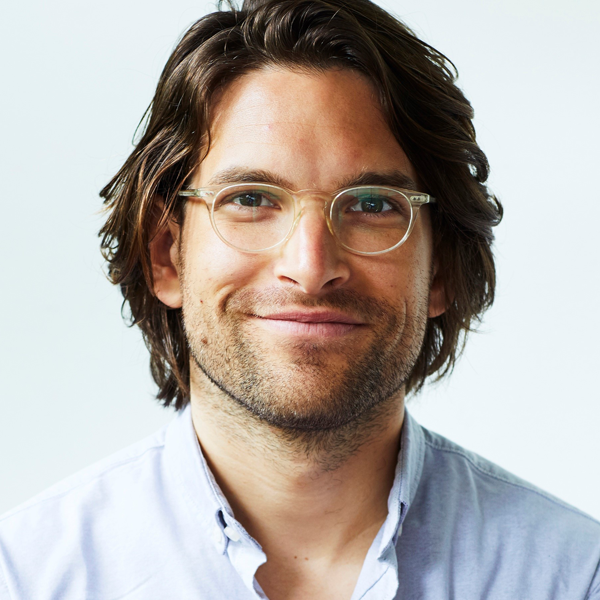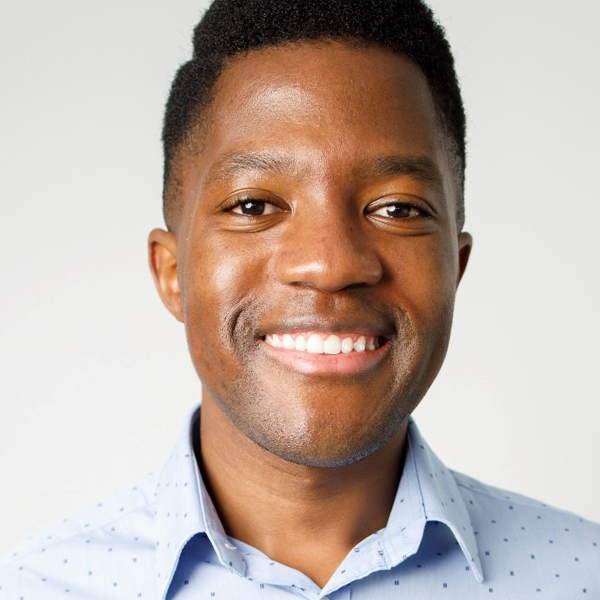Chef in safety mask hanging up sign closed on restaurant door.
Young people have been hit hard by the pandemic, and so the Youth Health Forum Summit in September provided an important and timely forum to identify the challenges and pain-points for young people and develop solutions and greater collaboration in the youth-health space. On the day, the message was clear: current systems are not working for young people, who want to be seen and heard and to have a greater say in politics, policy and service delivery. It is our job to provide young people the platform to be heard. We must do better.
Young people have been hit hard by the pandemic
The pandemic has affected us all but as we know, the conditions in which we live, work, learn and play largely determine our experiences. Because of this, the pandemic has impacted individuals and communities in different ways and to different extents.
VicHealth’s own research into the impact of the pandemic on the health and wellbeing of Victorians gave depth and clarity to what many of us saw, heard and indeed experienced ourselves during 2020: People in Victoria faced immense challenges, and some groups felt the burden more than others. Young people have been among the hardest hit [1],[2].
While young people may be less likely to be hospitalised due to COVID-19, since July 2020 a large percentage of transmission in Victoria has occurred amongst people under 30 [3]. This is due to several factors, including the fact that young people are more likely to work in insecure and customer-facing roles, and are also used to spending a higher proportion of their time socialising out of the home.
But of course, we are acutely aware that the impact of the pandemic on young people goes well beyond the physical and medical. Young people have been heavily impacted through job loss, disrupted education, reduced social connection and increased anxiety about the future. They are also at greater risk of experiencing loneliness and adverse changes in health behaviours. Consequently, young people are experiencing poorer mental health and increases in self-harm [4].
“[I’m] tired of living with my family, haven’t gone out of the house for two months, haven’t been to school to study. I am in year 12 [which is] such a crucial year, but because of this whole situation…We don’t even know if we will have final exams or not…This is emotionally stressful.” ~ 19-year-old woman from Vic
Young people are not a homogenous group, and they haven’t been affected equally by the pandemic. Young people with insecure work, who are living in public housing or studying, and young people with a disability have all been impacted differently and disproportionately.
These disruptions have happened at a critical life stage for young people, who are already coping with major transitions and establishing lifelong health attitudes and behaviours.
Shining a light on the experiences of young people
At VicHealth, working with young people is not a buzz word or an approach to merely ‘tick the box’. Our work is more than just consultation. It is about elevating the voices of young people in Victoria and facilitating genuine co-design of our recovery efforts. This is highlighted best by the new partnerships VicHealth launched with seven peak body youth organisations in Victoria. These partnerships will be critical in shaping health initiatives that deliver for young Victorians.
Like many others in the health promotion field, we recognise that we don’t have all of the answers to addressing the complex barriers that exist for young people to lead healthy and happy lives. However, the resilience and strength shown by young people over the past year has enabled us to change the way we work as an organisation, in order to find the solutions. These solutions lie within communities and young people. Our role is to listen to young people, support and facilitate.
Young people have provided us with rich insights into their lived experiences in the pandemic and it is vital their voices are heard and centred in our recovery efforts. Young people are resilient, creative, resourceful and capable. That’s why at VicHealth we are investing $45 million over three years throughout our Future Healthy initiative. We envision a future where no young person in the state is denied a future that is healthy, regardless of their postcode, bank balance or background.
VicHealth is committed to engaging with young people every step of the way as we build back better, fairer and greener after the coronavirus pandemic. We want young people to be seen and heard. To be centred in pandemic recovery efforts. To share their lived experiences and help inform and shape solutions…to be at the heart of action to improve both human and planetary health.
We have a chance to make a big difference. Let’s take it, together
COVID-19 has catapulted us all, as individuals and communities, into new ways of being and new ways of working. It is a time of disruption and change. Collective health and wellbeing have never been more important, and VicHealth will lead the way, through Future Healthy, by engaging young people every step of the way so they can share their lived experiences and help inform and shape future solutions.
As we journey through the pandemic and transition into a post-pandemic world, we have an enormous opportunity to usher in an era of greater health and wellbeing, where young people are genuinely seen and heard, and no one is denied a future that is healthy, regardless of their postcode, bank balance or background.
The Summit is now over but the conversations, connections and the young leaders and advocates continue to fuel our passion and determination to improve the health and wellbeing of young people. I urge you to join VicHealth in centring young people in recovery efforts. We have a once-in-a-generation opportunity to make a difference – let’s take it, together.
About the authors
 Dr Sandro Demaio, CEO of VicHealth, is a globally renowned public health expert and advocate. Having held the role of Medical Officer for non-communicable conditions and nutrition with the Department of Nutrition for Health and Development at the World Health Organization, Dr Demaio was previously the CEO of the EAT Foundation, the science-based, global platform for food systems transformation. He has published 30 scientific papers and more than 90 articles and authored Doctor’s Diet, a cookbook based on science and inspired by a love of good food. Dr Demaio also co-hosts the ABC television show Ask the Doctor . He originally trained and worked as a medical doctor at The Alfred Hospital in Melbourne. He holds an MA in public health, a PhD in non-communicable diseases and has held fellowships at both Harvard Medical School and Johns Hopkins School of Public Health.
Dr Sandro Demaio, CEO of VicHealth, is a globally renowned public health expert and advocate. Having held the role of Medical Officer for non-communicable conditions and nutrition with the Department of Nutrition for Health and Development at the World Health Organization, Dr Demaio was previously the CEO of the EAT Foundation, the science-based, global platform for food systems transformation. He has published 30 scientific papers and more than 90 articles and authored Doctor’s Diet, a cookbook based on science and inspired by a love of good food. Dr Demaio also co-hosts the ABC television show Ask the Doctor . He originally trained and worked as a medical doctor at The Alfred Hospital in Melbourne. He holds an MA in public health, a PhD in non-communicable diseases and has held fellowships at both Harvard Medical School and Johns Hopkins School of Public Health.
 Kevin Kapeke works as the Engagement Coordinator, Young People at VicHealth. He sits within the CEO’s office and in close partnership with all teams across VicHealth. He is responsible for coordinating and managing VicHealth’s partnerships with youth organisations, as well as supporting the integration of voices, lived experience and diverse perspectives of young people across Victoria into the work of VicHealth. Kevin serves on the Africa Day Australia and Zimbabwean Community boards and as an advisor on the Youth Led Panel at the Centre for Multicultural Youth.
Kevin Kapeke works as the Engagement Coordinator, Young People at VicHealth. He sits within the CEO’s office and in close partnership with all teams across VicHealth. He is responsible for coordinating and managing VicHealth’s partnerships with youth organisations, as well as supporting the integration of voices, lived experience and diverse perspectives of young people across Victoria into the work of VicHealth. Kevin serves on the Africa Day Australia and Zimbabwean Community boards and as an advisor on the Youth Led Panel at the Centre for Multicultural Youth.
[1] VicHealth, 2020, VicHealth Coronavirus Victorian Wellbeing Impact Study, Available at: www.vichealth.vic.gov.au/media-and-resources/publications/coronavirus-victorian-wellbeing-impact-study
[2] VicHealth, 2020, VicHealth Coronavirus Victorian Wellbeing Impact Study: Follow-up survey, Available at: www.vichealth.vic.gov.au/media-and-resources/publications/vichealth-coronavirus-victorian-wellbeing-impact-study-follow-up-survey .
[3] Department of Health and Human Services, 2020, Surveillance of notifiable conditions: Coronavirus COVID-19 in Victoria, online.
[4] Burnet Institute, 2020, Coping with COVID-19 Study, Available at: https://burnet.edu.au/system/asset/file/4200/9.2_Policy_brief_mental_health_young_people.pdf
